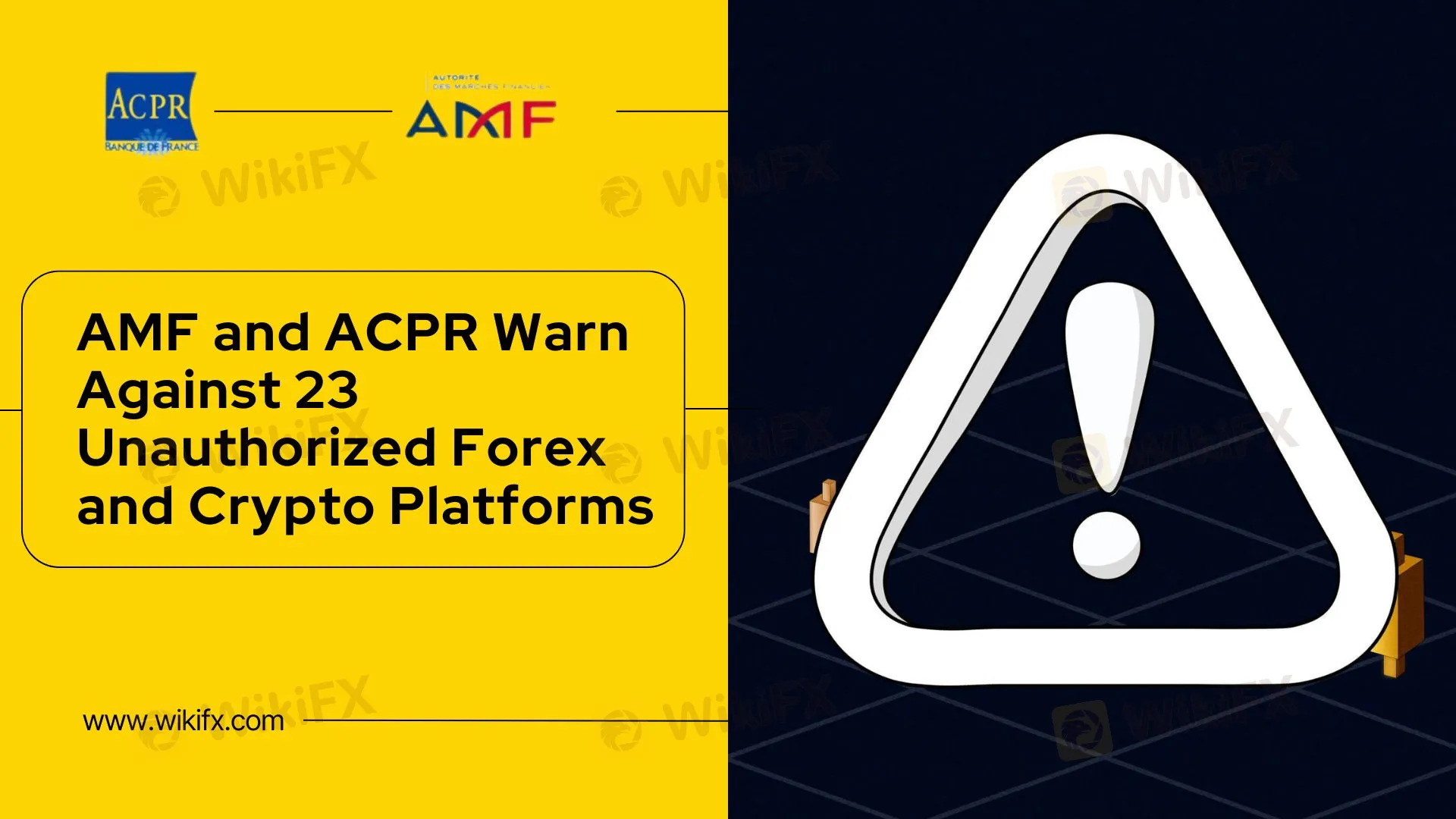AMF and ACPR Warn Against 23 Unauthorized Forex and Crypto Platforms
Abstract:French regulators have flagged 23 new websites for offering unauthorized Forex and crypto-derivative services.These platforms, which lack the necessary licenses, continue to target local investors with aggressive marketing and unrealistic profit promises. Authorities warn that many of these sites use misleading branding and domain names to appear credible.

A growing number of investment platforms continue to target French users with offers in forex trading and crypto derivatives—without having the legal right to do so. In response, Frances financial sector watchdogs have publicly identified 23 websites involved in unauthorized investment solicitation.
The platforms operate across two sectors: traditional foreign exchange (Forex) and derivatives based on crypto assets. Although they claim to offer profitable trading services, none of these websites hold the necessary licenses to promote or provide such financial products in France.
Platforms flagged for unauthorized Forex offerings:
- www.alpexoplus.com
- axetradecapital.com
- b-group.pro
- bitfinancial.info
- cfd.eliteai-t.com
- eliteai-t.com
- globalcim.com
- gryphoncapital.co
- luxtious.com
- roctec-europe.com
- silverfleetcapital.pro
- start.luxtious.com
- vision-fs.com
- vtmarketsfr.com
- wiitrader.com
Platforms flagged for unauthorized crypto asset derivatives:
- ai-assets.net
- www.bitunix.com
- crownet.com
- gpt-immediate.com
- investbridge-capital.com
- nova-finance.net
- platform.pltf-tchg.io
- web.lotradecoin.net
These platforms are not new to the digital investment scene. In many cases, the websites share common traits: vague company backgrounds, misleading contact details, aggressive promotion, and promises of high returns with minimal risk. Some have even mimicked the branding of licensed institutions or used web domains similar to legitimate financial groups.
Since 2019, French authorities have blacked out more than 1,200 such websites. Still, new domains appear frequently, often replicating the look and language of previously banned operators under fresh branding.
As unlicensed platforms remain active despite repeated enforcement actions, digital investors are urged to approach unsolicited offers with extreme caution—especially those involving Forex or crypto derivatives, which are often high-risk and complex by nature. Tools like WikiFX, a global broker inquiry platform, can help users verify regulatory status and reduce exposure to fraudulent services.
Read more

Pi Network: Scam Allegations Spark Heated Debate
A whistleblower report has surfaced, casting doubt on the legitimacy of Pi Network, alleging psychological manipulation, opaque operations, and potential financial exploitation. What is your take on this?

PayPal Account Holders Warned of Surge in Scams
Experts warn of increased PayPal scams, including fake emails and gift cards. Stay alert to protect your account from cybercriminals.

UN Warns Asian Scam Operations are Spreading Worldwide
UN report reveals Asian scam operations expanding globally, targeting Africa, Latin America with cyberfraud, generating billions amid crackdowns.

South Africa's Regulator Warns of WhatsApp Scam Impersonation with 30% Returns
New deepfake scam in South Africa uses fake FSCA video to promote fraudulent AI trading schemes. Public warned about unauthorized financial schemes.
WikiFX Broker
Latest News
Love, Investment & Lies: Online Date Turned into a RM103,000 Scam
Broker Took 10% of User's Profits – New Way to Swindle You? Beware!
Pi Network: Scam Allegations Spark Heated Debate
Broker Comparsion: FXTM vs AvaTrade
Account Deleted, Funds Gone: A New Broker Tactic to Beware Of?
Broker’s Promise Turns to Loss – Funds Disappear, No Compensation!
StoneX Subsidiary, Gain Global Markets Bermuda, Penalized for Trading Misconduct
El Salvador and U.S. Launch Cross-Border Crypto Regulatory Sandbox
The Instagram Promise That Stole RM33,000
Coinbase Launches Bitcoin Yield Fund for Institutional Investors
Rate Calc
